-
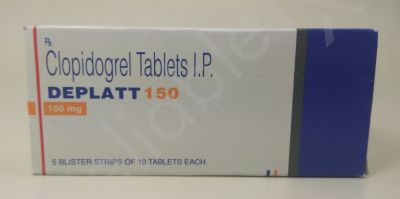 Deplatt 150 mgUS$ 0.42
Deplatt 150 mgUS$ 0.42$0.42
Generic For : ClopidogrelActive Ingredient : Clopidogrel50 Tablet/sUS$ 21.00 -
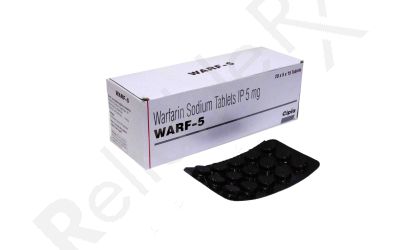 Warf 5mgUS$ 0.16 - US$ 0.27
Warf 5mgUS$ 0.16 - US$ 0.27$0.16 - $0.27
Generic For : CoumadinActive Ingredient : Warfarin30 Tablet/sUS$ 8.00 -
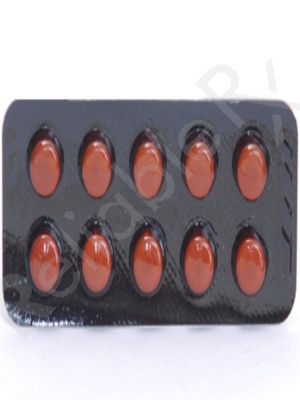
-
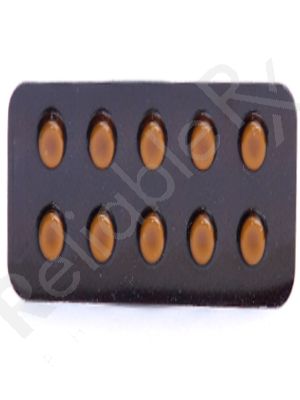
-
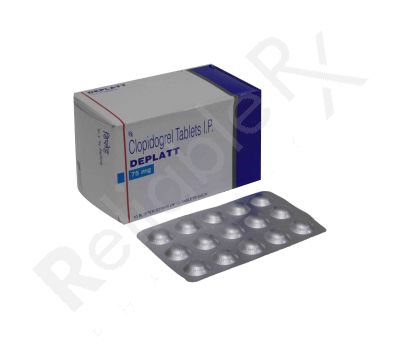 Deplatt 75mgUS$ 0.23 - US$ 0.42
Deplatt 75mgUS$ 0.23 - US$ 0.42$0.23 - $0.42
Generic For : ClopidogrelActive Ingredient : Clopidogrel30 Tablet/sUS$ 12.50
Anticoagulants
Anticoagulants are those medicines that are used to prevent blood clotting. These are also known as blood thinners. Blood clots are a plug of blood platelets and fibrin molecules formed to prevent the loss of blood when blood vessels are cut or damaged. Blood clotting is a natural mechanism of prevention of blood loss that can be prevented by a shock, and possible death can occur.
Blood flow through arteries and veins in our body. Blood circulation is necessary for the supply of different nutrients and oxygen to the different tissues and organs of the body. When these blood vessels get damaged or leak, then the blood clotting mechanism of our body repairs the damage and helps to restore the circulation of blood.
Causes of Blood clot:
The medical term used for a blood clot is ‘Thrombus’. thrombus is a natural process to prevent blood loss, perfectly done by our blood vascular system. It maintains the RBC and other rich nutrients contained in the blood by preventing its loss. but sometimes blood clots may occur causing damage to the body rather than helping it out.
A blood clot in veins: if the clots are formed in legs and arms then it is called DVT or deep vein thrombosis. The possible risk factors are:
• Prolonged stillness
• Pregnancy
• Smoking
• Use of hormonal pills or therapy including birth control pills
• Blood clotting disorders
A blood clot in arteries: the risk factor of arterial blood clots is related to heart stroke and peripheral vascular disease. The common causes are:
• High BP
• High cholesterol levels
• Smoking
• Diabetes
• Family history of cardiovascular disease
A blood clot in other areas: bladder infection and hemorrhoids are sometimes responsible for the blood clots passed in the urine, stools, or through a vagina. It is a very frightening condition and should be informed to doctor immediately.
Signs and Symptoms:
There are various signs and symptoms of a probable blood clot that may help you to identify its presence and to avoid any possible adverse effects of blood clotting. Many times blood clots do not provide any symptoms. The common symptoms of blood clots are:
• a Blood clot in legs and arms produces signs such redness, pain, and swelling
• The blood clot in an artery in the brain shows symptoms that are similar to brain stroke
• A blood clot causing pulmonary embolism can be identified by breathlessness and chest pain.
• When a blood clot occurs in arteries then the blood supply to different organs is halted, the symptoms of which are somewhat similar to heart attack, stroke, pulselessness, and painful arms or legs.
Adverse effects of the problem:
Although blood clotting is an important function of our blood circulation system, sometimes several life-risking problems may occur due to blood clotting.
Acute Heart attack, Angina pain, Pulmonary embolism, Stroke, and Mini stroke or transient ischemic attack all can occur if blood clots hinders with the smooth flow of blood in vessels
Preventive measures:
If you are worried about the probability of having a blood clot, then you can easily ward off your worries by using these simple tips:
• loose weight and maintain a healthy weight
• Avoid smoking
• Do not remain in the same position for a long time as it may cause blood clots in legs and arms
• Pick up some sports activity to keep yourself physically active
• Proper hydration is necessary to prevent blood clotting
• Be always attentive about the symptoms of clotting
• Research family history to know about the presence of any member with blood clotting disorder because this problem is inheritable
Common Anti-blood clot medicines:
Common anticoagulant drugs that are available for preventing blood clots are:
• Plavix
• Deplatt
• Uniwarf
• Ivecop
• Warf
You can buy these anticlotting medicines online and many other drugs at very reasonable prices from our online pharmacy reliablerxpharmacy.com.
Myths and facts:
Myth: Alcohol can cure blood clots
Fact: no, it’s a big misconception because although alcohol is a blood thinner researcher have found that in moderate drinkers alcohol is known to generate blood platelets, and they make the blood much stickier.
Myth: massaging during pregnancy can avoid blood clots
Fact: no it is not true, in fact, massaging increases blood clot formation. Hence, it is better for expecting mothers to avoid massaging.
Diagnosis of Blood clot:
Blood conditions are taken care of by specialists called hematologists. He is a person who can confirm the presence of blood clots by following tests:
• Blood tests
• ECG tests
• CT scan
• Ultrasound
• Venography
• Fluoroscopy
Treatment for Blood Clot:
Anticoagulants or Blood thinners are used for the treatment of blood clots. A few anti-coagulants are explained below:
Clopidogrel
It is an antiplatelet drug and is given for atherosclerosis, ischemic stroke, myocardial infarction, and unstable angina. It doesn’t allow the formation of blood clots by binding itself at the ADP (adenosine diphosphate) receptor and stops its platelet aggregation activity. It is available in the market in the form of tablets. The recommended dose is 75 mg once daily with or without food.
Aspirin
Aspirin is the most widely used blood thinner medication. It has analgesic, antipyretic, and antiplatelet effects. It demonstrates the antiplatelet action by inhibiting the production of thromboxane that stimulates the aggregation of platelets. It does not allow the formation of blood clots. It is one of the most recommended drugs given to patients with heart attack and stroke.
Heparin
It is a natural protein given via injection or drip into the vein before surgery as it prevents the formation of clots. It is a good blood thinner medication used to treat and prevent blood clots in the veins, arteries, or lungs. Don’t take an intramuscular injection. Heparin binds with the enzyme inhibitor antithrombin-III which inactivates the clotting factors, especially Xa, and prevents the formation of blood clots.
Dalteparin is a low molecular weight heparin and acts the same way as heparin by inhibiting the activity of clotting factors. Its dosage is particularly dependent upon the individual and the condition. It is used to treat blood clots in deep veins, and artery diseases and prevents the recurrence of clots in cancer patients.
Dabigatran
It is a newer oral anticoagulation drug or blood thinner, which inhibits the thrombin activity and doesn’t allow the formation of any blood clots. It is usually given in the atrial fibrillation condition and also prevents the formation of clots in the veins. Further, it is available in the form of capsules, which have to be taken twice a day with or without food. Side effects associated with the drug are bleeding, stomach pain, and nausea.
Buy these anticlotting medicines online from our trusted online pharmacy, reliablerxpahrmacy.com.
Steps to improve the health:
Following steps may help you to improve your condition if you are prone to blood clot problems:
• Loose excess of weight
• Stay fit by exercising daily
• Stay away from smoking
• Opt for hydrotherapy
• There are certain foods that help in preventing the unwanted clot formation in the body. Concomitant use of drugs and foods is contraindicated, so there is a need to consult with a physician before taking them. Ginger, garlic, and fish oil like salmon, tuna, and grape seed are food items that exclusively possess anticoagulant properties.
Important thing to know:
There are certain medical conditions that can cause blood clotting problems, as in the case of haemophilia, where the person’s blood doesn’t clot if bleeding occurs. A condition called von Willebrand factor deficiency also slows down the blood clotting process.
What are anticoagulants used for?
Anticoagulants are prescription medicines that help prevent blood clots. They are given to people at high risk of developing clots to reduce the chance of developing serious conditions such as heart attacks and strokes.
What type of conditions do anticoagulants treat?
Anticoagulants are given to treat blood clots in the lungs (pulmonary embolism), venous thrombosis (blood clots in the veins), and in people with atrial fibrillation (irregular heartbeat).
What are oral anticoagulants?
Oral anticoagulants such as warfarin, dabigatran, apixaban, rivaroxaban, betrixaban, and edoxaban prevent thrombosis (which occurs when blood clots block your blood vessels).
When do you use anticoagulant drugs?
Anticoagulants are used if you are more likely to develop blood clots that could cause a blockage of a blood vessel and interfere with blood flow around your body.
Do anticoagulants remove blood clots?
Anticoagulants, also known as blood thinners, do not thin the blood but slow down the body’s ability to form new blood clots and keep the existing ones from getting bigger.
How long does anticoagulant be used?
Anticoagulants are often chosen to treat a blood clot if there is a low risk of bleeding. Anticoagulation therapy is usually stopped at three months, especially when bleeding is a high risk.
Can anticoagulant drugs cause damage to the liver?
Warfarin, a commonly prescribed anticoagulant medicine, is associated with clinically apparent liver injuries that are usually mild and reversible on treatment discontinuation.
Which is the best anticoagulant for the long term?
Oral warfarin remains the preferred approach for the long-term treatment of blood clots. The single-dosing therapy can be continued on an outpatient basis.
Can anticoagulants cause bleeding?
A possible side effect of anticoagulant drugs is excessive bleeding because these medicines usually increase the time it takes to form blood clots.
Are blood thinners used for life?
If you have experienced a blood clot, you may be asked to continue taking blood thinners for the rest of your life.
Can I buy anticoagulants over the counter?
One may need anticoagulants if they have already suffered a heart attack or stroke since they can lower the risk of having another one. An anticoagulant is also required if you have a heart or blood vessel disorder, deep vein thrombosis, or an irregular heartbeat.
Do we need a prescription for anticoagulants?
Health care specialists typically prescribe blood thinners for individuals with irregular heartbeat, blood vessel disease, heart disease, or deep vein thrombosis. Patients with a history of heart attack or stroke are often prescribed anticoagulants.





20% OFF
On New Registration
Terms and Conditions Apply*
Flat 20% OFF
on your first purchase
20% off only on the product value
Maximum discount value $20
Only one coupon can be used at a time
Coupon code will be mailed on
your registered email address.
Login
Sign up
Flat 20% OFF
on your first purchase
20% off only on the product value
Maximum discount value $20
Only one coupon can be used at a time
Coupon code will be mailed on
your registered email address.
Login
Sign Up
Flat 20% OFF
on your first purchase
20% off only on the product value
Maximum discount value $20
Only one coupon can be used at a time
Coupon code will be mailed on
your registered email address.
Forgot Password ?